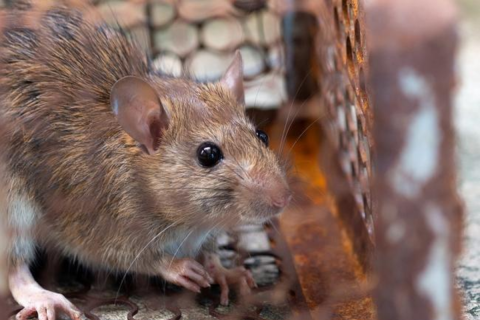Raising the profile of leptospirosis in Africa
Leptospirosis is one of the most widespread and pervasive zoonotic bacterial diseases worldwide, but unfortunately current research into leptospirosis in Africa is fragmented with little to no recent data available on human disease in many countries.
In this month's Transactions Editorial, Kathryn J. Allan, Jo E.B. Halliday and Sarah Cleaveland from the University of Glasgow discuss the challenges that limit our ability to detect and diagnose leptospirosis in low-resource settings. Little is known about risk factors for endemic infection in either human or animal populations. Laboratory diagnosis of infection can be challenging even in high-income settings, and may not be feasible in under-resourced hospitals and laboratory facilities. Furthermore, acute leptospirosis is often clinically indistinguishable from other causes of febrile illness in tropical areas, such as malaria or dengue fever, and is rarely considered as a differential diagnosis by clinicians.
Promoting clinician awareness of leptospirosis and raising the profile of leptospirosis in Africa with national and international policymakers is essential to tackle this neglected but important public health problem. The International Leptospirosis Society, which is holding its 9th Biennial meeting in Indonesia this week, plays an important role in disseminating research findings and promoting disease awareness. The International Leptospirosis Society provides invaluable support for leptospirosis researchers around the world with growing interest and enthusiasm for supporting work in Africa.
With African researchers poised to lead a global trend in zoonotic disease research, exciting opportunities exist to reverse the neglect of leptospirosis in the African continent.
to support the International Leptospirosis meeting, we have made a selection of papers published in Transactions of the Royal Society of Tropical Medicine & Hygiene freely available until 16 October 2015.
Evidence of Leptospira sp. infection among a diversity of African wildlife species: beyond the usual suspects - an original article by Sarah Jobbins and Kathleen Alexander
Atypical manifestations of leptospirosis - a review paper by Senaka Rajapakse and colleagues
High dose corticosteroids in severe leptospirosis: a systematic review - by Chaturaka Rodrigo and colleagues
Immunomodulatory treatment with thalidomide in experimental leptospirosis in Golden Syrian hamsters (Mesocricetus auratus) - an original article by Luciane Marieta Soares and colleagues
Electrocardiographic and echocardiographic manifestations of cardiac involvement in leptospirosis - an original article by Tharanga Fernando and colleagues
Are you looking for somewhere to publish your leptospirosis research?

Transactions of the Royal Society of Tropical Medicine & Hygiene is currently inviting submissions of original research papers. We publish high-quality articles with the aim of supporting the wider tropical medicine and global health community and future generations of academics, clinicians and scientists. We work hard to support our authors who trust us with their work. Here are just some of the benefits we offer:
- An average time to first decision of less than five weeks
- A dedicated and expert in-house Editorial Team
- Advance online publication
- Full PubMed/Medline indexing for all articles
- A number of Open Access publishing options
- Support for research from low and middle-income countries
Visit the Transactions website to find out more.